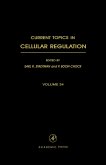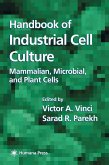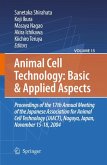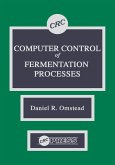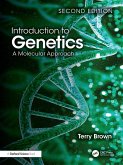Dieser Download kann aus rechtlichen Gründen nur mit Rechnungsadresse in A, B, BG, CY, CZ, D, DK, EW, E, FIN, F, GR, HR, H, IRL, I, LT, L, LR, M, NL, PL, P, R, S, SLO, SK ausgeliefert werden.
"P. pastoris has many superior traits. ... can grow to very high cell densities prior to switching on an inducible promoter (the AOX1 gene) for maximal recombinant protein production. The diversity of such proteins produced by expression strains of P. pastoris is quite amazing and this book describes detailed experimental protocols for a few of them (e.g. hookworm protein, botulinum toxin). ... This is a stand-alone book ... . a book that will prove valuable to yeast molecular geneticists and biotechnologists." (Graeme Walker, Microbiology Today, May, 2008)



